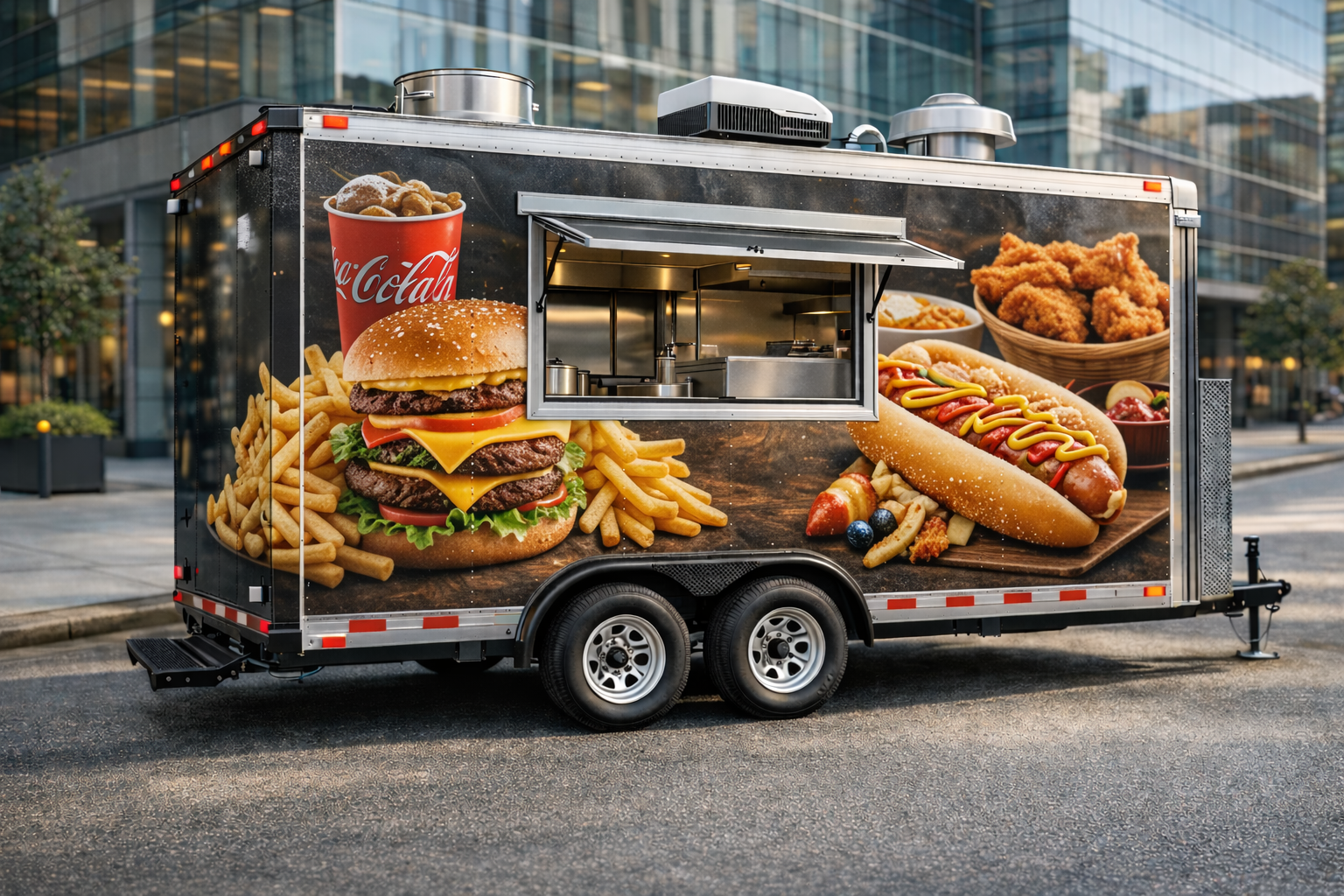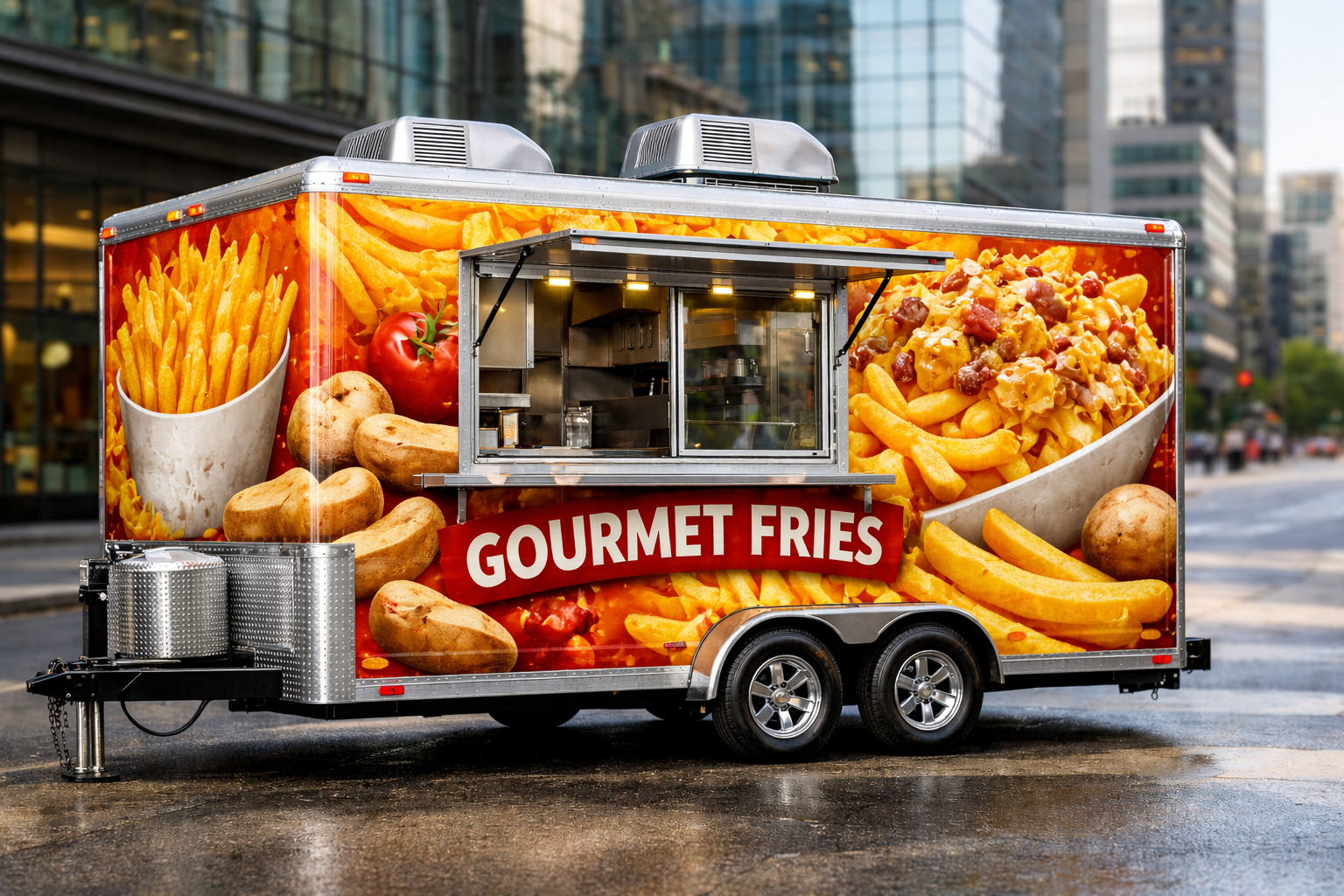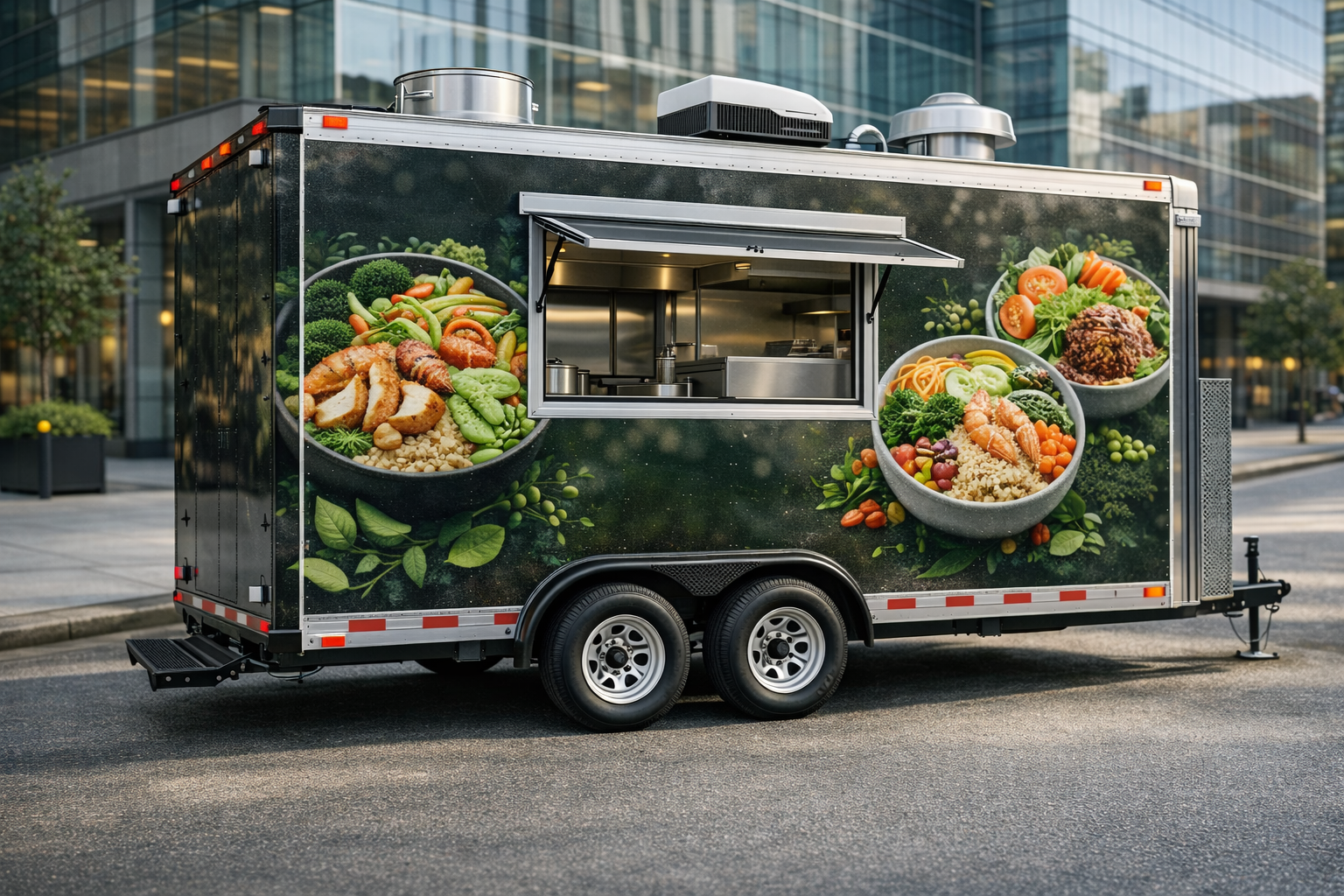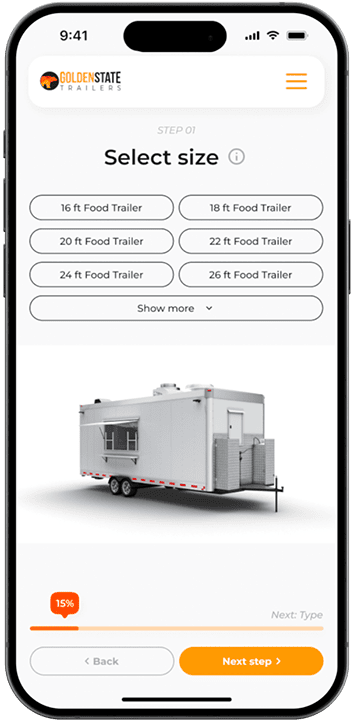The food truck industry has witnessed a significant rise in consumer interest, particularly in diverse and rich flavors like those found in Asian cuisine. Asian cuisine food trailers offer a unique advantage by presenting authentic, flavorful dishes in a mobile and engaging manner. The popularity of Asian dishes like sushi, ramen, and dumplings highlights the growing demand for these mobile delights. A key benefit of these trailers is their ability to cater to diverse taste preferences from savory Japanese ramen to spicy Thai dishes.
Asian cuisine trailers, such as those listed here, allow entrepreneurs to capitalize on this trend by bringing beloved dishes directly to the consumer, be it at events, festivals, or even street-side. The lower overhead compared to traditional brick-and-mortar restaurants makes these trailers an attractive business opportunity.
Customization is crucial for an efficient and functional Asian cuisine trailer. When planning your trailer, consider features like flexible cooking areas, space-efficient storage, and equipment placement that supports quick service. The customization process offers options such as installing specific wok stations or sushi prep areas so that your food trailer can efficiently produce high-quality dishes.
Furthermore, branding and aesthetics are equally important, as they leave a lasting impression on customers. From eye-catching graphics that communicate the authenticity and uniqueness of your cuisine to choosing the right color scheme that represents your brand identity, customization allows you to stand out in a competitive market. Learn more about diverse trailer types here.
Equipping your Asian cuisine food trailer with the right tools is paramount to delivering authentic flavors. Essential equipment might include a commercial-grade rice cooker, steamers for dumplings, and robust refrigeration units to ensure freshness. For Japanese cuisine, sushi cases and CVap cabinets are vital for maintaining the correct temperature and texture of the food.
Moreover, investing in quality cooking tools like large stoves for stir-frying, specialized knives for sushi preparation, and dedicated stations for assembling complex dishes can enhance efficiency and meal quality. To ensure compliance with safety standards, prioritize installations that meet local health regulations, and consider regular maintenance schedules for all equipment.
Many entrepreneurs have found success in the Asian cuisine food trailer sector by understanding their target market and offering distinctive menu items. For instance, a Seattle-based sushi trailer has gained a loyal following by offering customized sushi rolls at competitive prices, while a ramen trailer in Austin has become a go-to spot for both locals and tourists looking for authentic tastes.
These success stories emphasize the importance of not only delivering quality food but also creating a unique customer experience. By maintaining a consistent brand and engaging with customers through social media, these businesses have cultivated loyalty and grown their audiences.
Asian cuisine food trailers offer flexibility and lower operational costs compared to traditional restaurants, allowing for a wider reach to customers at events and different locations.
Customization involves designing efficient service areas with specific equipment tailored to preparing Asian dishes, along with branding elements that represent your culinary offerings.
Key equipment includes commercial rice cookers, steamers, refrigeration units, and specialized preparation tools like sushi knives and woks.
Compliance requires adherence to local health codes, ensuring your trailer is outfitted with approved materials and regularly maintained equipment.
Yes, with the right location strategy and quality offerings, Asian cuisine trailers can be highly profitable by leveraging the growing interest in diverse, mobile dining options.

 Hidden risks and better alternatives to used Fries Food Trailers for sale
Thinking about a used fries food trailer for sale? Learn the hidden risks of used food trailers, why loaded fries concepts need purpose-built layouts and how the right trailer design protects speed, safety and profits. Why used Fries Food Trailers can cost more than you expect? Entrepreneurs searching for used fries food trailers for sale […]
Hidden risks and better alternatives to used Fries Food Trailers for sale
Thinking about a used fries food trailer for sale? Learn the hidden risks of used food trailers, why loaded fries concepts need purpose-built layouts and how the right trailer design protects speed, safety and profits. Why used Fries Food Trailers can cost more than you expect? Entrepreneurs searching for used fries food trailers for sale […]
 The Rise of Healthy Bowl Food Trailers: A Fresh Business Opportunity
The food industry is constantly evolving, with trends emerging that cater to the ever-changing tastes and preferences of consumers. Among these, Healthy Bowl Food Trailers have become a formidable player in the mobile dining arena. These trailers offer a range of nutritious and delicious meal options, appealing to health-conscious patrons looking for convenience without compromising […]
The Rise of Healthy Bowl Food Trailers: A Fresh Business Opportunity
The food industry is constantly evolving, with trends emerging that cater to the ever-changing tastes and preferences of consumers. Among these, Healthy Bowl Food Trailers have become a formidable player in the mobile dining arena. These trailers offer a range of nutritious and delicious meal options, appealing to health-conscious patrons looking for convenience without compromising […]

